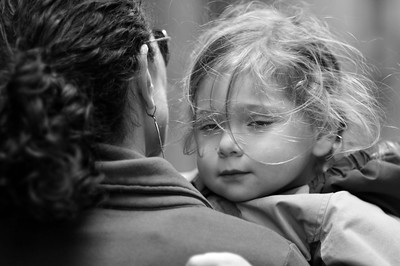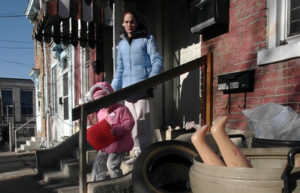Four community colleges in the US are working to increase the number of single mothers seeking degrees by 30% by 2024. The institutions also have plans to offer new supports to at least 6,000 single mothers during that time.
The Single Moms Success Design Challenge is partially funded by the ECMC Foundation. Its goal is to discover ways in which “community colleges can dramatically improve completion rates for single mothers by intentionally addressing the unique needs of this population.” The participating schools include Central New Mexico Community College (Albuquerque, NM), Delgado Community College (New Orleans, LA), Ivy Tech Community College (Indianapolis, IN) and Monroe Community College (Rochester, NY).
Each participating campus has designed different support programs to encourage single mothers to complete degree programs. The goal is to measure positive impact of support on degree completion for participating women. Each of the support programs features three key characteristics. They include personalized learning and career support; inclusive community and culture; and holistic support.
CNMCC has pledged to support 1,500 single mothers in its program. Delgado Community College intends to enroll 2,000 single mothers. Ivy Tech’s program will support 2,600 women. Monroe Community College can assist 954 women. If each site achieves maximum capacity in its program, collectively, 7,100 women will have access to these supports.
The sites assign case managers to each participant and offer supports that mitigate the challenges of attending school. For example, Ivy Tech will allow program participants to choose on a weekly basis how they would like to receive instruction. The student can choose to attend classes in person, synchronously online or asynchronously online. This flexibility enables women to address unexpected childcare availability challenges as they arise without compromising their own educational goals.
Supporting single mothers key to ending poverty
These community colleges are recruiting and designing supports for single mothers to increase enrollment and graduation rates. (I could find no evidence that closing the on-campus childcare center was part of any school’s support strategy.)
These four participating campuses are tackling the problem of low completion rates among single mothers head-on. They are also developing and promoting strategies that eliminate barriers to single-mother success. In doing so, they help these women improve their economic position. That lifts them as well as their children out of poverty.
According to the American Psychological Association, children who live in poverty experience “…hunger, illness, insecurity, instability … low academic achievement, obesity, behavioral problems, and social and emotional development difficulties.” Lifting a single mother out of poverty has a much broader impact than simply improving her economic position. It is literal “break-the-cycle” stuff.
The contrast between these campuses and Washtenaw Community College is remarkable. The participating campuses operate in communities where the overall poverty rate ranges from 16.9% to 31.3%. The current poverty rate in Washtenaw County is 13%. But single mothers lead 25% of all households with children here. In Washtenaw County, more than one-third of households headed by single women with children live below the poverty line. And one out of every four Washtenaw County women between the ages of 18 and 24 live in poverty regardless of whether they have children.
Instead of recognizing and approaching this challenge as an opportunity for positive change, the WCC Administration closed the Children’s Center. Instead of eliminating one of the largest concentrations of poverty in the county, the WCC Administration extended it.
So, how much of this is because the non-resident WCC Administration can only see this county’s wealth?
Photo Credit: Viewminder, via Flickr






























